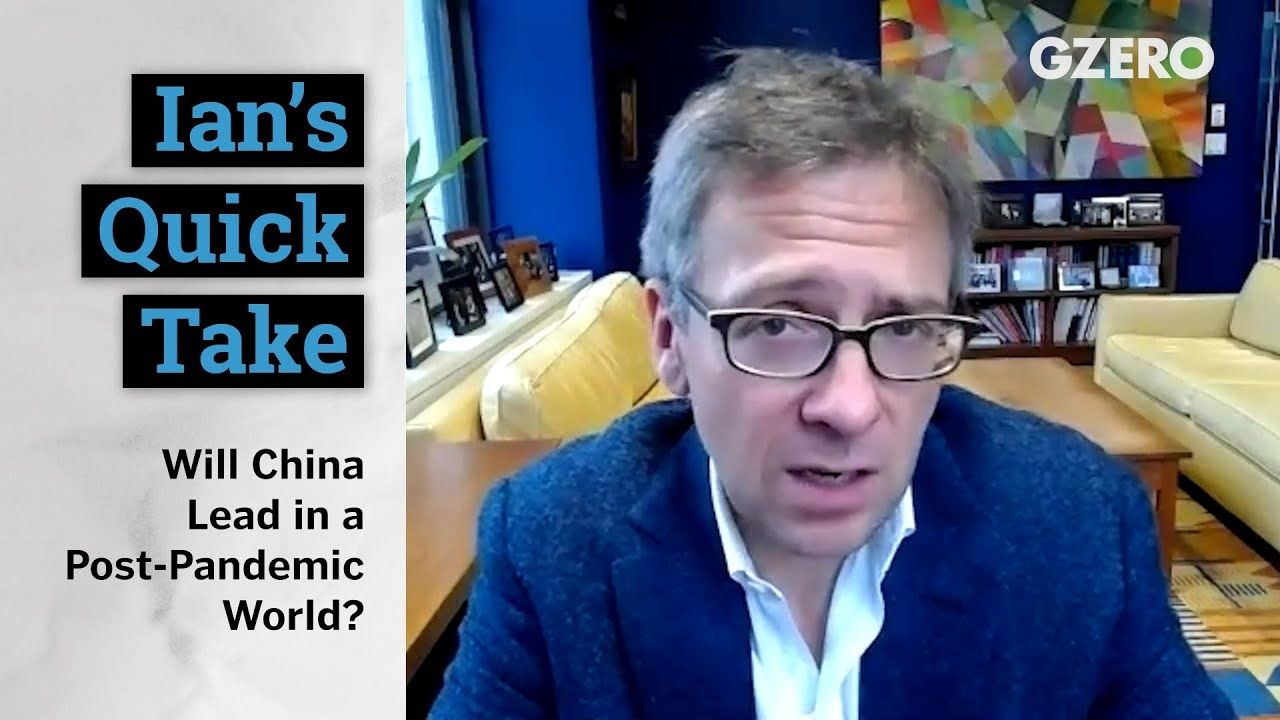
I've been writing about a G-Zero world, an absence of US global leadership for almost a decade now. Global crisis makes you question, how well does American democracy function? How well is it a representative democracy for the average American? Is it fit for purpose? Are other systems more effective?
A technologically empowered authoritarian regime has built-in advantages to respond to a pandemic. It can track people, make sure that they comply with authority. China can monitor in every building. There's extraordinary data concentration in smartphones. The digital Chinese economy is 50X the size of the digital US economy, even though the American economy is bigger. Built in tracking.
Google has the ability to geo track individuals. They can see where social distancing policies are working. Technology companies will be able to see who has gotten coronavirus and tested for it, who has not. Who is presently symptomatic, who is not, track where they are.
After 9/11, we were willing to give up liberties. The Patriot Act, TSA in airports. Surveillance on communications, supported because we were concerned about terrorists perpetrating another act like 9/11. I believe the pendulum swung too far on personal liberty and economic costs. That tradeoff is coming in the United States and in Europe.
I don't believe there is a moral equivalence between the US and China. But the argument that the Americans are leading the world by example is harder to make. American exceptionalism in its best manifestations - the Marshall Plan after World War II, the United Nations, the World Bank, the IMF, the World Trade Organization, NATO; the Berlin Wall coming down.
My first trip to the Soviet Union was in 1986. I believed the American system was structurally better than the Soviet system. Our ideas, our conception of personal liberties, how a free market economy should run. The person living under dictatorship in the Eastern Bloc wanted independence. I think the collapse of the Soviet Union was an unmitigated positive for the world and the people living under it.
So many more will be left behind as a consequence of this crisis. I believe America's moral authority, ability to lead by example is being compromised structurally.
The alternative to the US for some countries will be China. Belt and Road comes with conditionality that will be problematic, but it's more than nothing. The Americans are abdicating leadership. "If you don't follow us, we're going to sanction you, we're not going to share intelligence." The US is wielding a stick, but very little carrot.
In the worst crisis we've seen since World War II, the US is offering allies very little carrot. China's carrot may be small, rotted, but there's a carrot. "What's our alternative? Chinese 5G, they get our data, but the Americans will too, it's cheaper if it's Chinese, they're doing stuff for us." When the Americans are no longer trusted. It's not clear to me that we have the moral authority to convince allies to align with us. That means the Chinese will pick up more ground.
The Chinese covered up the virus to begin with, we got the initial explosion. 5 million traveling from Wuhan in the initial month across China and all over the world. 500,000 of them traveling outside China. The Americans and Europeans responded late and inadequately, but the original sin of this pandemic comes from China. When the global economy is contracting and poor countries face an absence of economic support, "what are you doing for me lately," is more significant.
I don't think the Chinese are close to supplanting the United States as the global superpower. Military spending is nowhere close. The US has a global footprint. The Chinese footprint is regional. America's diplomatic core is a lot larger than China's. Despite everything I said about lack of leading by example, there is not moral equivalence between a system that has rule of law and independent judiciary, no matter how flawed, and the system that you presently have in China, authoritarian and state capitalist. We're going to have a power vacuum. There's going to be an absence of global leadership. In that vacuum, the Chinese will be able to take advantage. They'll have more influence than they did. Collective humanity is going to be poorer for it.